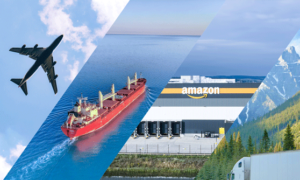Ships and boats are both watercrafts that can be used for various purposes, such as transportation, recreation, fishing, exploration, and more. However, they are not the same thing. There are some key differences between ships and boats that you should know before you decide which one to use or buy.
Definitions and Differences Between Ships vs Boats
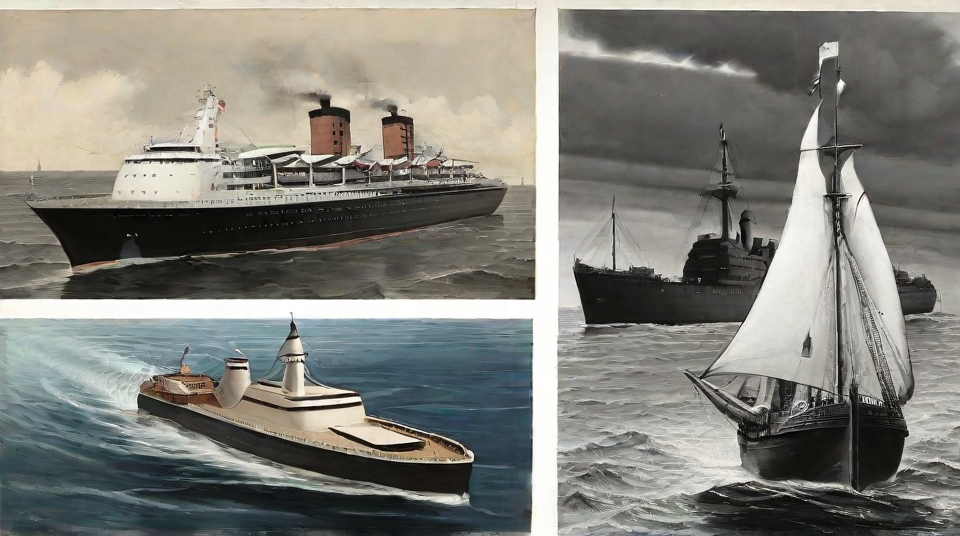
According to the Oxford English Dictionary, a ship is “a large vessel for transporting people or goods by sea”, while a boat is “a small vessel propelled on water by oars, sails, or an engine”. However, this definition is not very precise, as there are some exceptions and overlaps.
One way to distinguish between ships and boats is by their size. Generally, ships are larger than boats, and can carry more people and cargo. Ships also have a deeper draft, which means they need more water depth to float. Boats, on the other hand, are smaller and lighter, and can operate in shallow waters.
Another way to differentiate between ships and boats is by their structure and design. Ships usually have a complex structure, with multiple decks, cabins, compartments, and machinery. They also have a crew of professionals who operate and maintain them. Boats have a simpler structure, with one or a few decks, and minimal or no cabins. They can be operated by one or a few people, who may or may not have formal training.
A third way to tell apart ships and boats is by their navigation and communication systems. Ships have sophisticated navigation and communication systems that allow them to travel long distances across the oceans and communicate with other ships and ports. They also have to follow international regulations and standards for safety and environmental protection. Boats have basic or no navigation and communication systems and are mostly used for short trips within coastal or inland waters. They have to follow local laws and rules for safety and operation.
Types of Ships
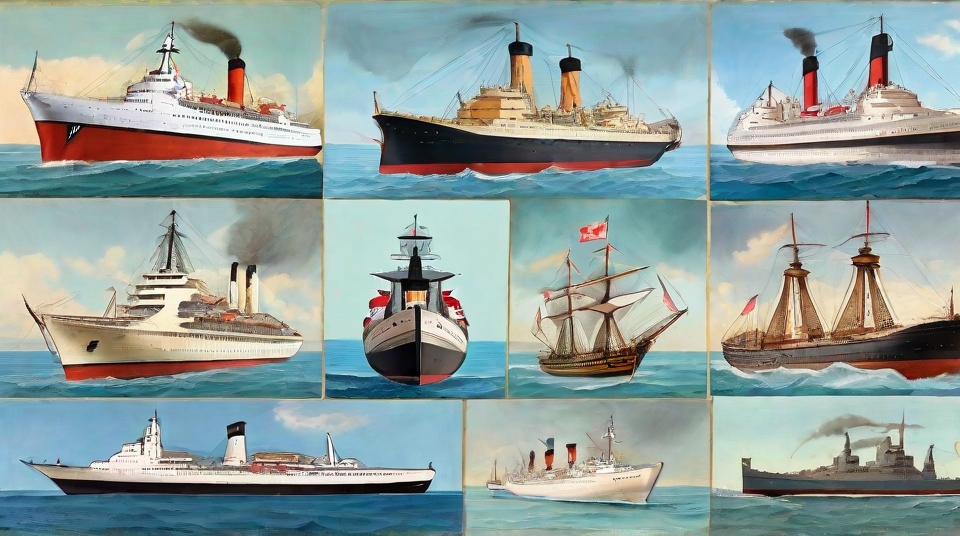
There are many types of ships, depending on their function, shape, size, propulsion, and construction. Some of the common types of ships are:
- Cargo ships: These are ships that transport goods and materials from one place to another. They can be classified into different categories, such as bulk carriers, container ships, tankers, roll-on/roll-off ships, etc.
- Passenger ships: These are ships that carry people for travel or leisure. They can be divided into different categories, such as cruise ships, ferries, yachts, etc.
- Naval ships: These are ships that belong to the navy or other armed forces. They are used for military purposes, such as warfare, defense, surveillance, etc. They can be divided into different categories, such as aircraft carriers, battleships, submarines, destroyers, etc.
- Fishing ships: These are ships that are used for fishing or aquaculture. They can be divided into different categories, such as trawlers, seiners, longliners, etc.
- Research ships: These are ships that are used for scientific research or exploration. They can be divided into different categories, such as oceanographic vessels, polar vessels, hydrographic vessels, etc.
Types of Boats
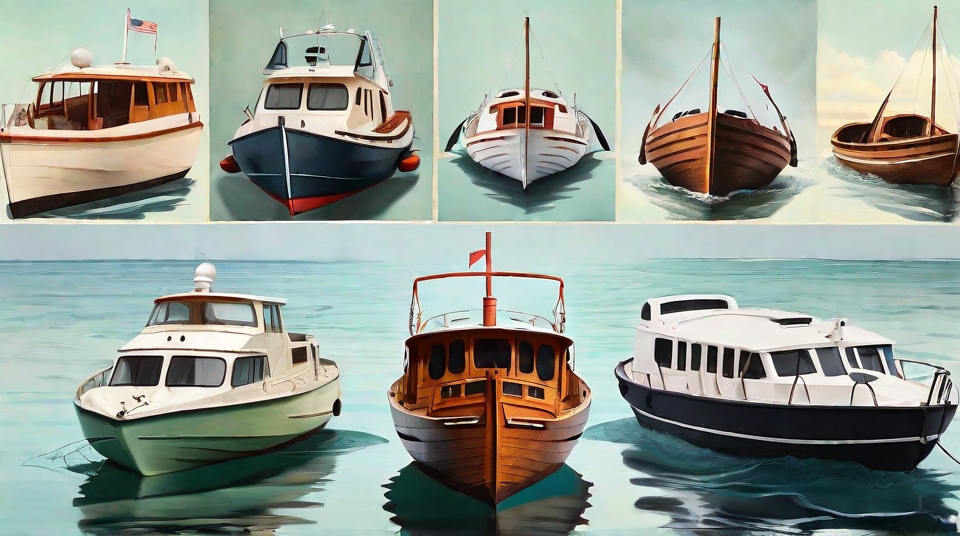
There are also many types of boats, depending on their function, shape, size, propulsion, and construction. Some of the common types of boats are:
- Rowing boats: These are boats that are propelled by oars that are held by one or more rowers. They can be used for recreation, sport, or transportation. Some examples of rowing boats are skiffs, dinghies, canoes, kayaks, etc.
- Sailing boats: These are boats that are propelled by sails that catch the wind. They can be used for recreation, sport, or transportation. Some examples of sailing boats are sailboats, catamarans, yachts, etc.
- Motorboats: These are boats that are propelled by engines that use fuel or electricity. They can be used for recreation, sport, or transportation. Some examples of motorboats are speedboats, jet skis, powerboats, etc.
- Inflatable boats: These are boats that are made of flexible materials that can be inflated with air or gas. They can be used for recreation, sport, or emergency. Some examples of inflatable boats are rafts, rubber boats, RIBs (rigid inflatable boats), etc.
Factors to Consider When Choosing Between a Ship and a Boat

Choosing between a ship and a boat depends on several factors, such as:
ship vs boat
- Purpose: What do you want to use the watercraft for? Is it for personal or commercial use? Is it for transportation or recreation? Is it for short or long trips? Is it for fishing or research? Depending on your purpose, you may need a ship or a boat that suits your needs and preferences.
- Budget: How much money do you have or are willing to spend on the watercraft? Ships are generally more expensive than boats, both in terms of purchase and maintenance. Boats are cheaper and easier to buy and maintain, but they may have lower quality and performance. You have to balance your budget with your expectations and requirements.
- Space: How much space do you have or need on the watercraft? Ships have more space than boats, both in terms of storage and accommodation. Boats have less space, but they may be more comfortable and cozy. You have to consider how much space you need for yourself, your passengers, your cargo, and your equipment.
- Location: Where do you want to use the watercraft? Ships can travel across the oceans and seas, but they may not be able to access some shallow or narrow waters. Boats can operate in coastal or inland waters, but they may not be able to withstand some rough or stormy conditions. You have to consider the geography and climate of your destination and route.
Uses and Applications of Ships
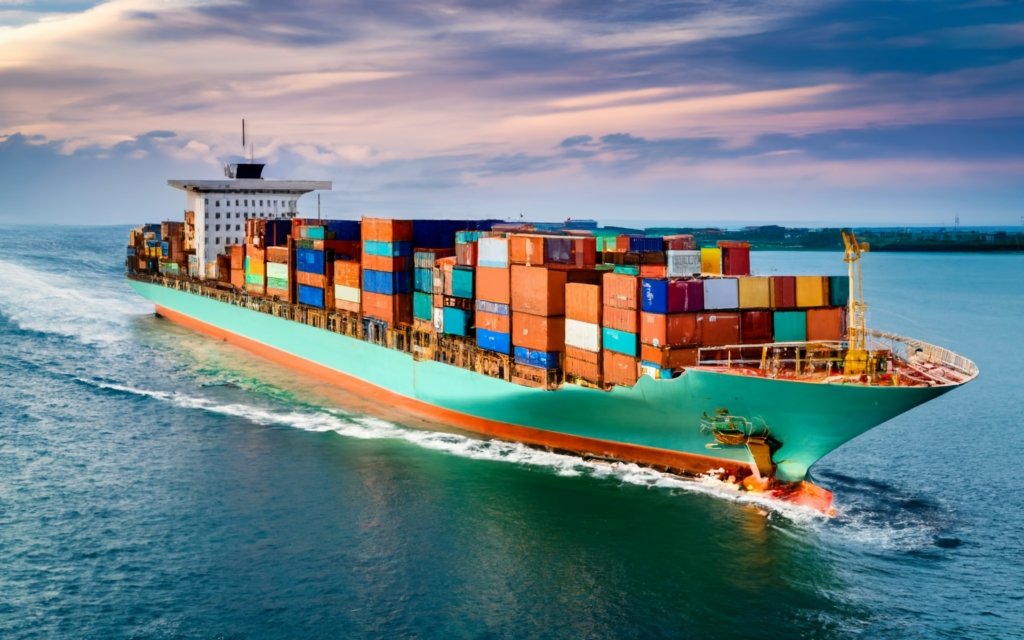
Ships have many uses and applications, such as:
- Transportation: Ships can transport large quantities of people and goods across long distances and different regions. They can also transport specialized cargo, such as oil, gas, chemicals, etc.
- Recreation: Ships can provide entertainment and relaxation for people who want to enjoy the sea and the scenery. They can also offer various activities and facilities, such as dining, shopping, gambling, spa, etc.
- Military: Ships can perform various military functions, such as warfare, defense, surveillance, intelligence, etc. They can also carry weapons and equipment, such as missiles, guns, aircraft, etc.
- Fishing: Ships can catch fish and other marine organisms for food or trade. They can also cultivate fish and other aquatic animals for aquaculture.
- Research: Ships can conduct scientific research and exploration on various aspects of the ocean and its life. They can also collect data and samples for analysis and study.
Uses and Applications of Boats
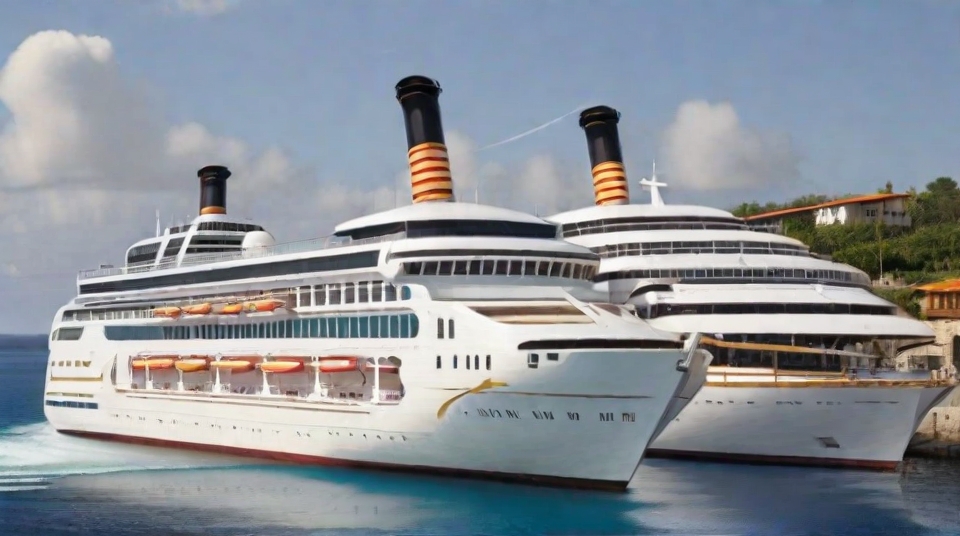
Boats also have many uses and applications, such as:
ship vs boat
- Transportation: Boats can transport small numbers of people and goods across short distances and specific areas. They can also transport personal or recreational items, such as bikes, skis, etc.
- Recreation: Boats can provide fun and excitement for people who want to experience the water and the thrill. They can also offer various activities and sports, such as fishing, skiing, surfing, etc.
- Military: Boats can perform some military functions, such as patrol, rescue, infiltration, etc. They can also carry some weapons and equipment, such as grenades, rifles, etc.
- Fishing: Boats can catch fish and other marine organisms for food or hobby. They can also use nets, rods, hooks, etc.
- Research: Boats can conduct some scientific research and exploration on some aspects of the ocean and its life. They can also collect some data and samples for observation and testing.
Cost Considerations for Ships vs Boats

Ships and boats have different costs associated with them, such as:
ship vs boat
- Purchase cost: This is the initial cost of buying the watercraft. Ships are generally more expensive than boats, depending on their type, size, quality, features, etc.
- Maintenance cost: This is the ongoing cost of keeping the watercraft in good condition. Ships require more maintenance than boats, due to their complexity, size, machinery, etc.
- Operation cost: This is the cost of running the watercraft on a regular basis. Ships consume more fuel than boats, due to their weight, speed, engine, etc.
- Insurance cost: This is the cost of protecting the watercraft from risks and damages. Ships have higher insurance premiums than boats, due to their value, liability, exposure, etc.
Safety Considerations for Ships vs Boats
Ships and boats have different safety issues and challenges that need to be addressed and resolved such as:
- Weather conditions: This is the state of the atmosphere and the sea that affects the watercraft’s performance and stability Ships are more resilient and adaptable to various weather conditions than boats due to their size and design Boats are more vulnerable and susceptible to adverse weather conditions than ships due to their size and design
- Navigation systems: This is the system that helps the watercraft’s operator or crew to determine their position and direction Ships have more advanced and reliable navigation systems than boats due to their technology and equipment Boats have less sophisticated or no navigation systems than ships due to their technology or lack thereof
- Communication systems: This is the system that allows the water
- craft’s operator or crew to communicate with other watercrafts or ports. Ships have more effective and diverse communication systems than boats, due to their technology and equipment. Boats have less efficient or no communication systems than ships, due to their technology or lack thereof.
- Emergency systems: This is the system that helps the watercraft’s operator or crew to deal with emergencies or accidents. Ships have more comprehensive and robust emergency systems than boats, due to their safety standards and regulations. Boats have less complete or no emergency systems than boats, due to their safety standards or regulations.
Conclusion and Final Thoughts
Ships vs boats are both watercrafts that can be used for various purposes, but they have some significant differences that you should be aware of. Ships are larger, more complex, more expensive, and more capable than boats, but they also require more maintenance, fuel, insurance, and safety measures. Boats are smaller, simpler, cheaper, and easier than ships, but they also have lower quality, performance, reliability, and durability.
Choosing between a ship and a boat depends on your purpose, budget, space, location, and personal preference. You should consider the advantages and disadvantages of each option before making a decision. You should also consult with experts or professionals who can guide you and help you find the best watercraft for your needs.



